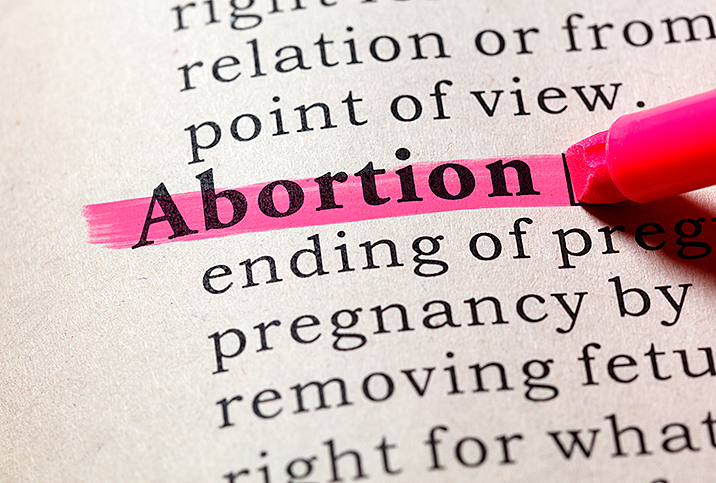Supreme Court Weighs Mifepristone Decision

Key Points
- Mifepristone is a drug commonly used as the first in a two-step regimen for medication abortion and miscarriage management.
- A group of anti-abortion doctors and organizations are suing the FDA, claiming the agency acted unlawfully in approving the abortion pill and expanding its availability, an argument the Justice Department disputes.
- During oral arguments, the justices seemed skeptical of banning mifepristone access, although a ruling is not anticipated until June.
The Supreme Court Tuesday, April 2, heard oral arguments in a case that could curtail Americans' ability to access mifepristone, one of two drugs commonly used in medication abortion and miscarriage care.
Although a decision isn't expected until June 2024, justices seemed skeptical that the plaintiffs—a cohort of anti-abortion doctors and organizations—have the legal standing to pursue the case at all.
A decision in the plaintiffs' favor would likely make the abortion drug more difficult to acquire, even in abortion-legal states, and affect millions of people.
Why is there a mifepristone case at the Supreme Court?
The suit, Alliance for Hippocratic Medicine v. FDA, is the most significant case concerning reproductive rights since Dobbs v. Jackson Women's Health Organization, in which a 6-3 majority on the Supreme Court voted to overturn Roe v. Wade and the constitutional right to abortion.
The Alliance for Hippocratic Medicine (AHM) sued the FDA in November 2022, claiming the agency acted unlawfully in a series of actions that made access to mifepristone easier. The complaint also claimed the drug had not been appropriately vetted before its approval in 2000.
Many health experts believe mifepristone is one of the most critical advances in the history of abortion technology, offering a safe, effective and accessible alternative to surgery.
As part one of the standard two-step regimen involved in medication abortion or miscarriage management, it blocks the production of the hormone progesterone to stop a pregnancy from growing. It also prepares the uterus to respond to misoprostol, the second medication, which causes uterine contractions.
More than 100 studies have affirmed mifepristone's safety and efficacy, and adverse side effects are "exceedingly rare," according to the FDA. Despite the research and the experiences of millions of women, the Alliance for Hippocratic Medicine argues the agency's actions have put women at risk.
The plaintiffs also argue the FDA overstepped its authority in subsequent years, including by authorizing mifepristone prescriptions via telehealth and allowing for medication abortions at up to 10 weeks of gestation instead of seven.
In April 2023, U.S. District Court Judge Matthew J. Kacsmaryk of the Northern District of Texas ruled in AHM's favor, effectively making it illegal to dispense mifepristone even in abortion-legal states.
Shortly after, the Department of Justice appealed the decision and asked the Supreme Court to issue an emergency relief to allow mifepristone to remain on the market while legal proceedings continued. The Supreme Court approved this, and Danco Laboratories, mifepristone's manufacturer, made a similar request.
Months later, the U.S. Court of Appeals for the 5th Circuit ruled it was too late to undo the FDA's initial approval but left the rest of Kacsmaryk's ruling intact. By request of the Biden Administration and Danco Laboratories, the Supreme Court is now reviewing the 5th Circuit's decision.
Because the Supreme Court's emergency relief order preempted the 5th Circuit's ruling, the abortion pill is still available unrestricted. Mifepristone will remain unrestricted until and unless the high court decides in the plaintiff's favor.
What have the justices said so far?
Throughout the nearly 90-minute session, justices primarily questioned whether the Alliance for Hippocratic Medicine had the right to sue in the first place. The plaintiffs claim that the FDA's actions harm anti-abortion doctors by forcing them to violate their consciences by treating women who experience complications from mifepristone.
The Biden administration rejects this argument as too speculative.
In the FDA's defense, Solicitor General Elizabeth Prelogar argued that AHM's case rests on a "long chain of remote contingencies" and that the doctors don't "come within 100 miles" of having a legal standing.
Research indicates fewer than one percent of people who take the drug require hospitalization, suggested a 2015 report. The chances of a woman needing such care and requiring an anti-abortion doctor to provide it in such a way that violated their conscience are exceedingly unlikely, Prelogar argued.
Conservative and liberal justices—including Amy Coney Barrett, Neil Gorsuch and Brett Kavanaugh, all of whom ruled to overturn Roe v. Wade—seemed to doubt that doctors could show the FDA's actions had directly injured them.
Multiple justices, including Barrett and Kavanaugh, noted that existing federal protections already safeguard medical personnel from providing abortion-related care that violates their consciences.
Justice Barrett also clarified that federal conscience objection laws shield medical professionals from having to participate in an abortion to end the life of an embryo or fetus. She noted that AHM members had failed to provide evidence they had ever participated in such actions.
Recommended
- FDA Approves First Pill for Postpartum Depression: The new drug can help to alleviate crippling depression in as little as three days.
- What Is a Vacuum-Assisted Delivery and What Happens If You Need One?: If you run into trouble when trying to deliver your baby, a vacuum extractor may help.
- Can Extreme Heat Affect Your Pregnancy?: Staying cool is the best way pregnant women can beat the heat during extreme conditions.
Even if the plaintiffs met the legal standing requirements, some justices appeared concerned the lower court's ruling was too broad and its implications too sweeping.
"This case seems like a prime example of turning what could be a small lawsuit into a nationwide legislative assembly on an FDA rule or any other federal government rule," Justice Gorsuch said.
Justice Ketanji Brown Jackson also highlighted a concern brought forth by the pharmaceutical industry, which backs the FDA. In court filings and public statements, industry stakeholders have argued that allowing federal judges to second-guess the drug approval process could invite litigation on other controversial drugs, from the birth control pill to hormone therapies and fertility treatments.
"Do you think that courts have specialized scientific knowledge with respect to pharmaceuticals ... or do you have concerns about judges parsing medical and scientific studies?" Justice Brown Jackson asked Jessica Ellsworth, a lawyer representing Danco Laboratories.
"People have other ways to seek justice if they feel they've been harmed by unsafe drugs, including suing pharmaceutical companies," Ellsworth replied.
Several justices asked detailed medical questions about mifepristone and abortion care to understand better the likelihood that the abortion pill's accessibility could harm doctors.
However, Justices Clarence Thomas and Samuel Alito were the only two with more questions about the case's substance than its standing.
"Your argument here is that even if the FDA acted unlawfully, nobody can challenge that in court," Justice Alito told Prelogar. He then asked if the FDA considers itself "infallible."
Justices Alito and Thomas also referred to the Comstock Act, a 151-year-old anti-vice law that prohibits sending "obscene, lewd or lascivious" materials in the mail. Among other things, the Act was designed to curtail the distribution and use of pornography, contraceptives and medication used in abortion in early America.
When Justice Thomas asked Ellsworth how she would respond to an argument that mailing and advertising mifepristone would violate the Comstock Act, she replied that the statute hadn't been enforced for nearly a century.
"I don't believe that this case presents an opportunity for the court to opine on the reach of the statute," she said.
Why does access to mifepristone matter?
Millions of people have taken mifepristone since its approval in 2000, whether to terminate an early pregnancy or evacuate tissue following a miscarriage. The drug is also used to treat conditions, like Cushing's disease, unrelated to pregnancy.
Along with misoprostol, mifepristone is an essential medicine and a crucial part of reproductive care, according to the World Health Organization (WHO). In the U.S. and other countries where access to in-person medical treatment is limited for large swaths of the population, the abortion pill is particularly vital.
Roughly one in three people capable of becoming pregnant live in states with severe abortion restrictions, according to the Center for American Progress. Moreover, approximately 2.2 million women of childbearing age live in maternity care deserts where gynecological care is inaccessible, according to the March of Dimes.
Besides logistical concerns such as transportation and cost, these medications allow people to access abortion without the stigma associated with visiting a clinic.
In June 2022, the U.S. Supreme Court decision to uphold Mississippi's Gestational Age Act, effectively overturned Roe v. Wade, Dobbs v. Jackson Women's Health Organization, returning the authority to regulate abortion "to the people and their elected representatives."
In the calendar year following that decision, an estimated 642,700 medication abortions were performed within the healthcare system. This represented 63 percent of all procedures nationwide, according to the Guttmacher Institute.
Medication abortions via telehealth account for about 16 percent of all procedures nationwide, according to a February 2024 report.
If the Supreme Court leaves the 5th Circuit's ruling intact, patients will need to visit their healthcare provider in person three times to obtain the FDA-approved drug, among other restrictions.
Many anti-abortion advocates believe that simply invoking the Comstock Act alone—via a Supreme Court decision or an executive order—could effectively enact a de facto nationwide abortion ban.
Besides restricting access to abortion pills, abortion advocates warn that such legislation could also hinder the transportation of medical supplies used in surgical terminations.
Decreasing the time in which mifepristone can be used from 10 weeks to seven would also be significant, as nearly half of medication abortions occur after seven weeks, per the Centers for Disease Control and Prevention (CDC).
This is largely because most people don't know they're pregnant until after at least four weeks—around the time they'd likely worry about a missed period.
"Preserving access to mifepristone—an exceedingly safe and effective prescription drug approved by the FDA—will protect patients and allow physicians to continue to provide medically appropriate care that is firmly rooted in evidence-based science," wrote Jack Resneck Jr., M.D., immediate past president of the American Medical Association (AMA), in a statement published by the AMA on March 25 this year.
"Reimposing unnecessary limits on mifepristone will jeopardize public health and significantly worsen inequities in maternal health for people of color, those with low incomes and those living in underserved communities," he said. "All medications carry some risks, but it's rare for patients to experience even minor complications from medication abortions, and the alternatives can be far more perilous."
Danielle Grimm, CNP, WHNP-BC, clinical director of the OB-GYN Department at The Dimock Center in Roxbury, Massachusetts and board treasurer for the National Association of Nurse Practitioners in Women's Health (NPWH), agreed.
"For those who argue mifepristone shouldn't be as accessible due to safety concerns, I would argue that barriers to receiving this medication pose a larger safety concern to women," she said. "Unable to access mifepristone, a well-studied and effective medication, women may be forced to turn to alternatives resulting in dangerous outcomes."
Non-medical termination methods, such as herbal abortions, can be dangerous. So, too, is pregnancy itself, particularly when it is unplanned or unviable.
Deaths associated with mifepristone are 14 times lower than those linked to pregnancy and childbirth, according to a 2017 study.
People of color—particularly Black women, those with low incomes and those living in rural areas—are especially vulnerable to severe maternal morbidity, Resneck wrote. Furthermore, he explained that pregnant people of color are more likely to experience miscarriage, for which mifepristone is part of an effective and accessible treatment.
"Restricting mifepristone is restricting control of a woman's body and her choices," Grimm said. "This impacts marginalized groups significantly who already have difficulties accessing many aspects of healthcare. It will overburden a fragile system."
The bottom line
Women who live in abortion-legal states can still perform self-managed medication abortions using mifepristone through 10 weeks of pregnancy. The abortion pill is available with a prescription via telehealth or an in-person visit with a healthcare provider.
If mifepristone access is restricted, people will still be able to perform at-home abortions with misoprostol only. However, this requires more doses and has a higher risk of side effects.
The Supreme Court is expected to decide on mifepristone access later this year, as early as June.


















